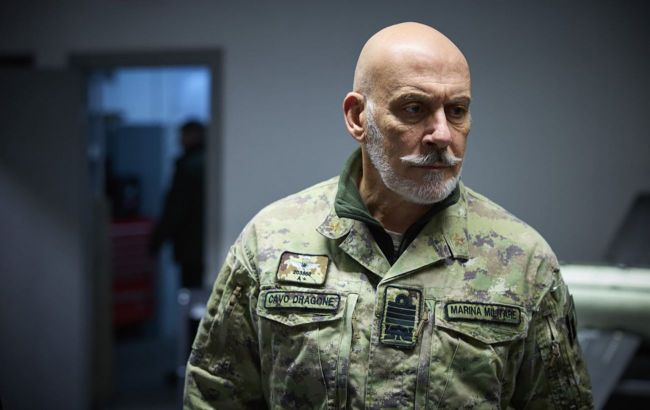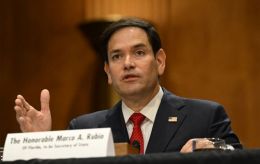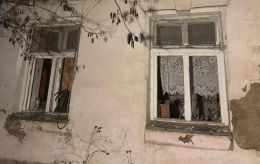NATO calls freezing war in Ukraine 'a worst-case scenario'
 Chair of the NATO Military Committee Admiral Giuseppe Cavo Dragone (Photo: Getty Images)
Chair of the NATO Military Committee Admiral Giuseppe Cavo Dragone (Photo: Getty Images)
Freezing the war in Ukraine is "a worst-case scenario". The Western partners are primarily focused on achieving a genuine lasting peace, says NATO Military Committee Admiral Giuseppe Cavo Dragone in an interview with RBC-Ukraine.
According to him, ensuring a lasting ceasefire is a complex task that depends on many factors.
"Of course, we all wish for a complete ceasefire all over Ukraine as soon as possible, as well as a just and lasting peace! That said, as I have already stated, a bad peace could be worse than no peace at all. A frozen conflict would be a worst-case scenario. Let us focus now on achieving and maintaining a rightful and long-lasting enduring peace," Dragone added.
Truce between Ukraine and Russia
A partial truce is currently in effect between the warring parties. In particular, on the Black Sea and in the energy sector. As Ukrainian Foreign Ministry spokesperson Heorhii Tykhyi clarified the day before, the energy truce has been in effect since March 25.
Meanwhile, Moscow has set March 18 as the start date for the ceasefire. This regime should last at least 30 days. According to Tykhyi, the date of March 18 is an invention of the Russians, and the ceasefire is in effect from the date of the publication of statements following indirect talks mediated by the United States in Saudi Arabia.
The Ukrainian side believes that the Russians have already violated this regime. Yesterday, the enemy massively struck Kherson, causing damage to the energy sector. According to President Volodymyr Zelenskyy, Kyiv is waiting for a reaction from America, as it must monitor compliance with the agreements.
Earlier, the head of the Kherson Regional Military Administration, Oleksandr Prokudin, said that freezing the front line could lead to the division of the region.
President Zelenskyy is against the freeze scenario. In his view, this would allow Russia to use Ukrainian resources in the occupied territories to strengthen its army and prepare for a new invasion.

